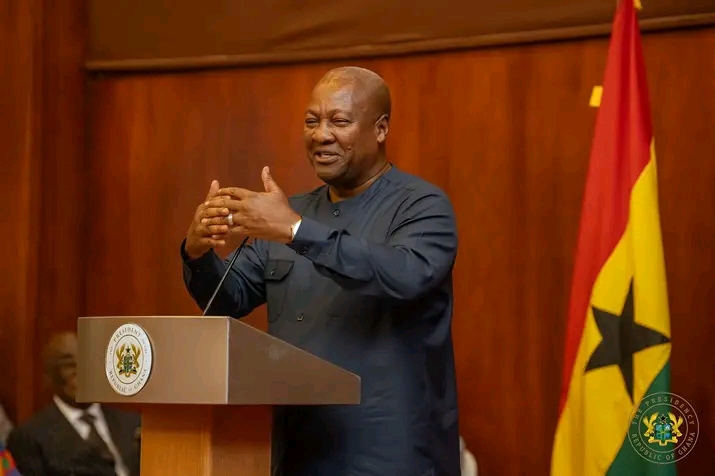By: Kenneth Appiah Bani
In a bold declaration of Ghana’s economic transformation agenda, President John Dramani Mahama, the current President of the Republic, has announced that the long-anticipated 24-Hour Economy Initiative will officially commence on July 1, 2025. As part of this groundbreaking policy, Ghana’s two main seaports Tema and Takoradi will transition to 24-hour operations, marking the first phase of a national strategy to drive continuous productivity and industrial efficiency.
President Mahama made the announcement during a policy address in Accra, where he emphasized that the 24-hour economy is not merely about extended working hours but a strategic overhaul of Ghana’s economic architecture.
“We are implementing a game-changing strategy the 24-Hour Economy Initiative to unlock Ghana’s productive potential across all sectors,” he stated. “On July 1st, the 24-Hour Initiative policy will be ready to go into operation.”
At the heart of the initiative is a renewed focus on agriculture and agribusiness, particularly horticulture, where perishable goods such as pineapples, mangoes, chilies, and herbs will benefit from a faster and more efficient logistics chain. The aim is to eliminate bottlenecks that result in post-harvest losses, while enhancing export competitiveness.
“It allows perishable goods to move swiftly from the field to ports to international sheds, minimizing losses and maximizing value,” the President said.
This 24-hour framework will facilitate uninterrupted production, processing, and export, boosting Ghana’s positioning in the global agro-export market.
To support the strategy, President Mahama revealed that preparations are in advanced stages to declare Tema and Takoradi ports as 24-hour operational hubs. The policy will be implemented through coordinated efforts between the Ministry of Trade, Agribusiness and Industry, the Ministry of Transport, the Ghana Ports and Harbours Authority (GPHA), the Ghana Revenue Authority (GRA), and the Ghana Shippers’ Council, among other key stakeholders.
The transition to 24/7 port operations is expected to drastically reduce port congestion, demurrage costs, and shipping delays outcomes that will have a ripple effect across the business and investment environment.
President Mahama stressed that the success of the 24-hour economy rests on a comprehensive investment in infrastructure, energy, security, transportation, and digital platforms that enable round-the-clock industrial and commercial activity.
“It’s not just about working longer hours. It’s about building the systems that support uninterrupted national productivity,” he explained. “This is a strategy of hope rooted in efficiency and scale.”
Massive infrastructure upgrades, improved energy supply, extended public transport services, and smart digital platforms are being rolled out to support businesses operating in the 24-hour framework.
With Ghana facing rising youth unemployment and calls for sustainable economic solutions, the 24-Hour Economy Initiative is being hailed as a timely and visionary intervention. Analysts believe that if fully executed, it could redefine Ghana’s economic model by shifting from dependence on daytime trade cycles to a robust, productivity-driven economy operating across three shifts morning, evening, and overnight.
In addition to job creation, the policy is expected to stimulate investment, increase exports, and enhance Ghana’s industrial base.
As July 1 approaches, businesses, exporters, and public sector institutions are preparing for what could become one of Ghana’s most significant economic transformations in decades a clear signal that under President Mahama’s leadership, Ghana is ready to work around the clock.
Video credit:GHONE TV.
WATCH VIDEO






